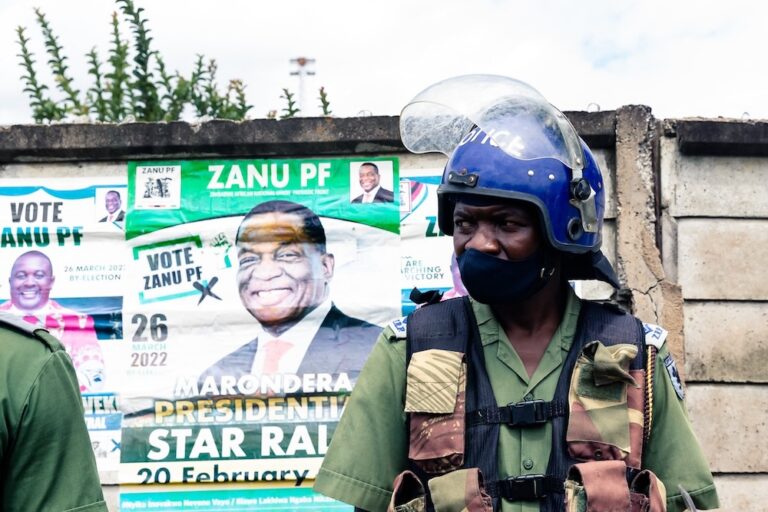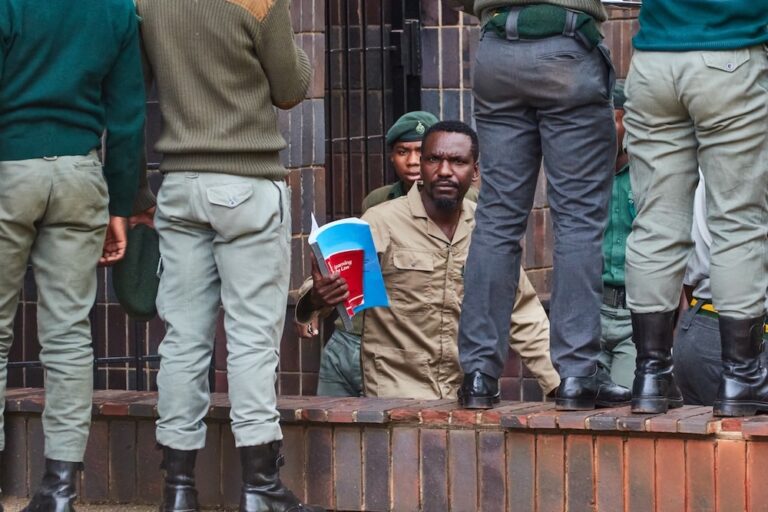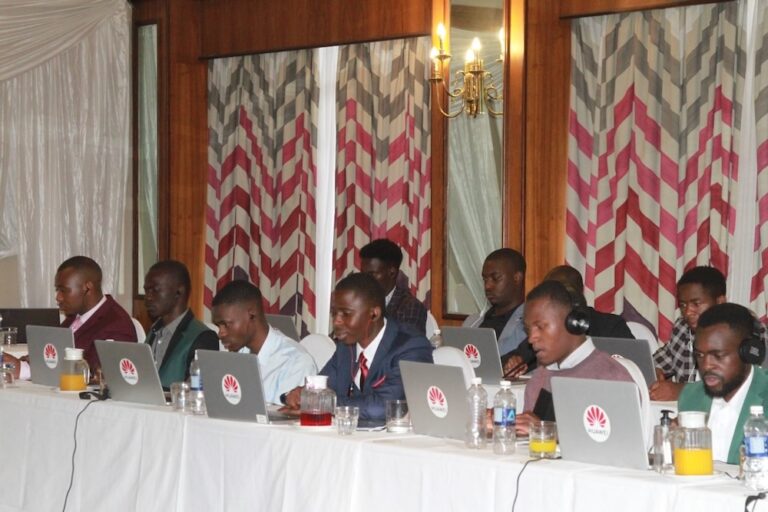(MISA/IFEX) – A Parliamentary Select Committee, probing allegations of insider trading on the Zimbabwe Stock Exchange and in the shares of Zimbabwe Holdings Limited (Finhold), has demanded that journalists who had written reports of its preliminary findings be forced to reveal their sources. On 9 June 1999, the committee refused to finalise its work until […]
(MISA/IFEX) – A Parliamentary Select Committee, probing allegations of
insider trading on the Zimbabwe Stock Exchange and in the shares of Zimbabwe
Holdings Limited (Finhold), has demanded that journalists who had written
reports of its preliminary findings be forced to reveal their sources.
On 9 June 1999, the committee refused to finalise its work until the
journalists from two independent papers, “The Daily News” and the “Financial
Gazette”, revealed their sources. The two papers reported on the committee’s
preliminary findings in their editions of 3 and 5 June respectively.
The “Daily News” reported that following complaints from some members, the
committee resolved that it would not continue until the two reporters had
revealed who their sources were, “especially the one who showed the true
picture of what had been going on within the committee.”
The two journalists were reported to be in contempt of parliament as they
had reported proceedings of a parliamentary committee before an interim
report had been published.
Efforts by MISA-Zimbabwe to get comments from the Speaker of Parliament,
Cyril Ndebele, were fruitless as he was said to be out of his office.
However, his secretary told MISA-Zimbabwe that the speaker was not in a
position to comment as the committee chairperson, Joram Gumbo, had not met
with the speaker to discuss the issue.
The relationship between parliament and the media in Zimbabwe is governed by
the Privileges, Immunities and Powers and Parliament Act (Chapter 10), which
outlines a number of offences which could be committed by media. The act
grants the parliament powers to punish the media for contempt of parliament.
Section 22 of the act says that it is a criminal offence for “willfully
refusing to obey an order of Parliament, refusing to be examined before or
to answer any lawful and relevant questions put by Parliament, and
publishing the proceedings of Parliament or evidence given before such a
committee before the proceedings of the committee have been reported to
Parliament.”
Section 17 (4) of the act empowers the parliament or parliamentary committee
to punish for contempt. The parliament can sit as a court and inquire into
the matter and also mete out punishment to offenders. If the committee is
investigating an issue which is leaked to the media before a report is
completed, the media can be forced to reveal the source of that information
and if they fail to do so they can punished for contempt. The law does not
recognise any journalistic privileges in these situations.
The act was previously used against the “Financial Gazette” in 1992. The
editor of the “Financial Gazette” at the time, Trevor Ncube, and his
reporter, Regis Nyamakanga, were summoned before a Parliamentary Committee
following publication of a story leaked from the committee, which was then
investigating allegations of a banking scandal against cabinet ministers,
members of parliament and government officials. The story in the
Zimbank-Lorac scandal quoted an unnamed member of the committee who alleged
that government ministers and others had received favours from a corrupt
businessman. The parliamentary committee expressed the view that it had been
prejudiced in its investigations by publication of an article. Members of
Parliament constituted as a court under section 17(4) of the Privileges Act
and ordered the two to reveal their sources or face prosecution. Fearing the
possibility of a prison sentence, Ncube revealed his source. Ncube was asked
to apologise to the committee and no further action was taken against him.
In no other cases have journalists been fined or imprisoned for contempt of
parliament.


